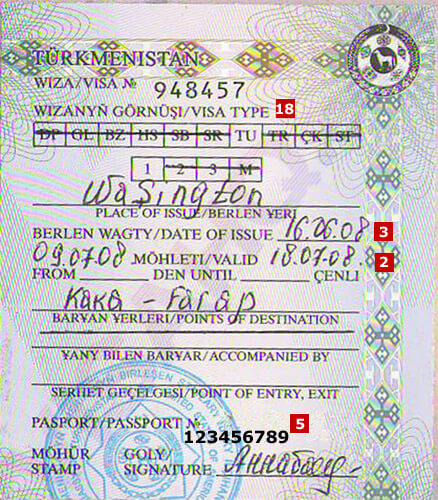Turkmenistan Embassy list in Iraq
Need help?Chat with us
Why Trip Registration at the Turkmenistan Embassy is Important
Registering your trip with the Turkmenistan embassy is crucial for ensuring your safety while abroad. In the event of a natural disaster, political unrest, or medical emergencies, the embassy can act swiftly to provide support and assistance to registered citizens. For instance, in the case of an earthquake or flooding, embassy personnel can coordinate evacuation efforts and relay critical information. Similarly, if political disturbances arise, they can advise on safe areas to stay or facilitate communication with local authorities. In medical emergencies, having an updated registration ensures that the embassy can reach you promptly and assist with locating nearby medical facilities. This proactive step can make a significant difference in your well-being and peace of mind during your travels.
Turkmenistan Embassy FAQs
Can the Turkmenistan embassy assist in legal issues abroad? Yes, the Turkmenistan embassy can provide guidance and support in legal matters, including connecting you with local legal services.
What should I do if I lose my Turkmenistan passport in Iraq? If you lose your passport, report the loss to local authorities and the Turkmenistan embassy immediately. They can assist in the process of obtaining a replacement.
Can the embassy help if I am a victim of a crime in Iraq? Yes, the embassy can assist victims of crime by providing guidance, connecting you with local law enforcement, and offering support services.
What resources does the embassy provide for Turkmen nationals living in Iraq? The embassy provides various resources, including community outreach programs, health information, and legal assistance tailored to citizens residing in Iraq.
Services Provided by Turkmenistan Embassies in Iraq
Passport Services
- Issuance of new passports
- Renewal of expired passports
- Lost passport replacement
Visa Issuance for Foreign Nationals
- Visa services for tourists and business travelers
- Assistance with visa applications and requirements
Assistance in Legal or Medical Emergencies
- Legal support and guidance
- Medical assistance and contacts with local healthcare providers
Travel Alerts and Safety Updates
- Issuing regular safety updates and travel advisories
- Informing nationals of potential risks and safety measures
Support for Nationals Detained Abroad
- Assistance for Turkmen nationals facing detention or arrest
- Facilitation of communication with legal representatives
Summarized Diplomatic Presence
The Turkmenistan diplomatic presence in Iraq is characterized by its embassy located in Baghdad, which serves as the primary mission for fostering diplomatic relations. The embassy’s primary functions include promoting political, economic, and cultural ties between Turkmenistan and Iraq. It plays a vital role in supporting Turkmen citizens living or traveling in Iraq and addressing their needs. The diplomatic relationship enhances cooperation in areas such as trade, energy, and security, promoting mutual interests between the two nations and contributing to regional stability.
